Your Guide to Conference Peer Review Process
The Importance of Peer Review in Scientific Conferences
Research conferences are pivotal platforms for the scientific community to share groundbreaking discoveries, foster interdisciplinary collaboration, and uphold the integrity of academic research. Central to this mission is the peer review process—a cornerstone of scholarly communication—that ensures the work presented meets the highest standards of originality, relevance, and academic rigour. Whether evaluating abstract submissions, posters, or full research papers, an effective peer review process elevates the credibility, quality, and impact of any conference.
However, managing the peer review process can be a complex and time-intensive challenge for academic event organizers. With the right submission and review tools, such as Fourwaves Peer Review Software, even intricate tasks like assigning reviewers, managing evaluations, and ensuring fairness can become streamlined and efficient, saving organizers valuable time while maintaining high standards.
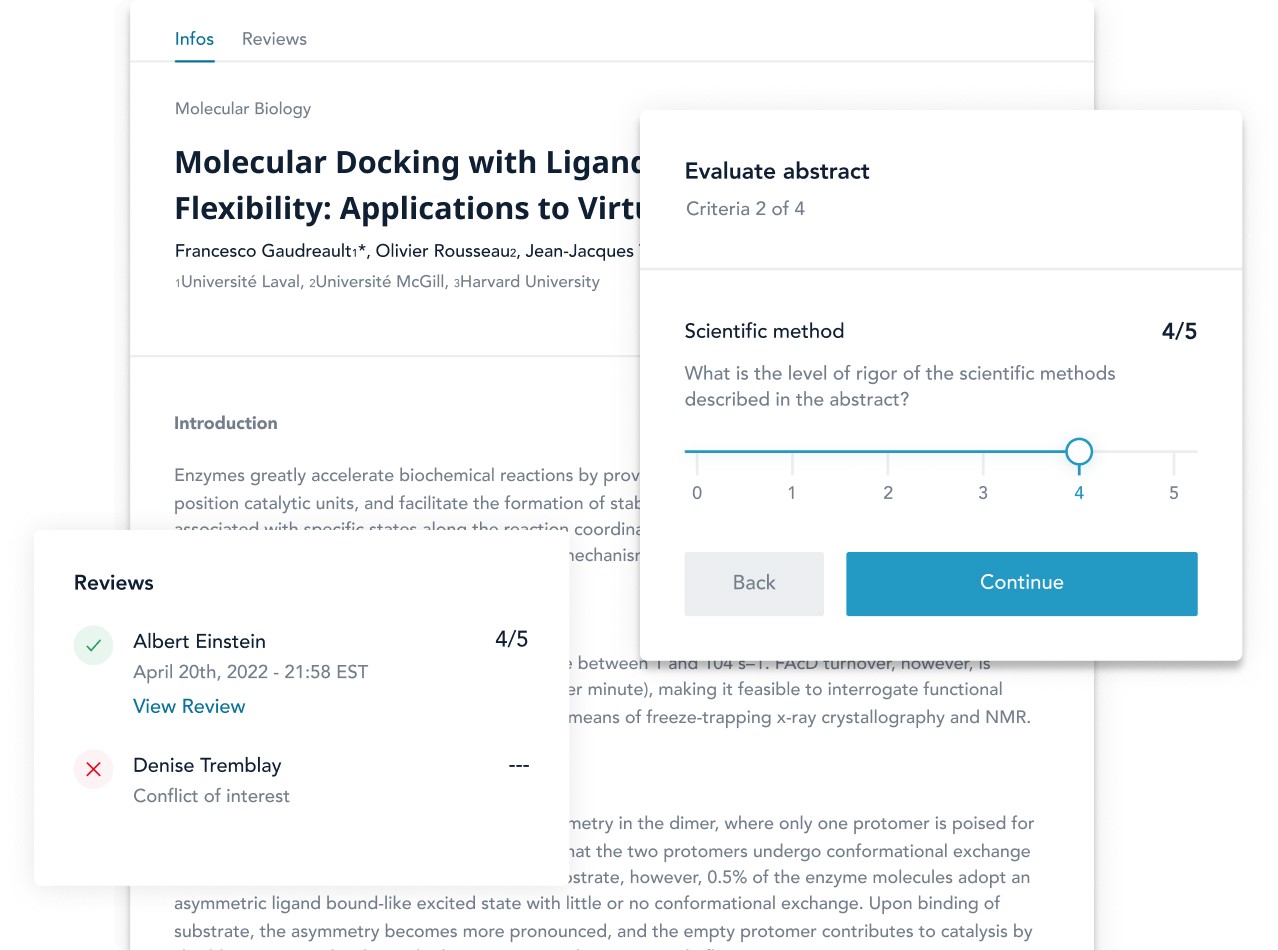
What is Peer Review?
The peer review process involves subjecting submitted research or proposals to scrutiny by subject matter experts. This critical evaluation ensures that the work is credible, original, and contributes meaningfully to the field. For conferences, the peer review process often differs from that of journal publications, focusing on shorter timelines and aligning with themes relevant to the event’s goals.
Peer review not only ensures academic rigor but also provides authors with constructive feedback to refine their presentations or research. By promoting transparent review processes and incorporating ethical publishing practices, conferences can uphold the highest standards of scholarly communication, fostering trust and respect within the academic community.
Learn more on why every academic event needs a structured peer review process - Read our Guide to Conference Peer Review.
Common Types of Peer Review
Peer review ensures that research proposals or papers are critically assessed by experts, guaranteeing reliability and value for the conference. Here are the most common types of peer review:
Single-Blind Peer Review
- Reviewers know the authors, but authors do not know the reviewers.
- Advantages: Straightforward and efficient.
- Challenges: May introduce bias or favoritism, particularly in smaller fields.
Double-Blind Peer Review
- Both authors and reviewers remain anonymous, reducing conflicts of interest.
- Advantages: Encourages unbiased evaluations.
- Challenges: Anonymizing submissions can be challenging, especially in niche or specialized fields.
Open Peer Review
- Authors and reviewers are both identified, promoting collaboration and scientific transparency.
- Advantages: Ideal for conferences that encourage open dialogue and constructive feedback.
Pro Tip: Not sure which review type suits your event? Read more about the differences between single-blind, double-blind, and open peer review to make an informed decision.
Key Steps in the Conference Peer Review Process
The peer review process for research conferences is typically less rigorous than that for journal submissions but equally vital to maintaining academic standards. Here’s a step-by-step guide to navigating it successfully:
1) Gathering Submissions
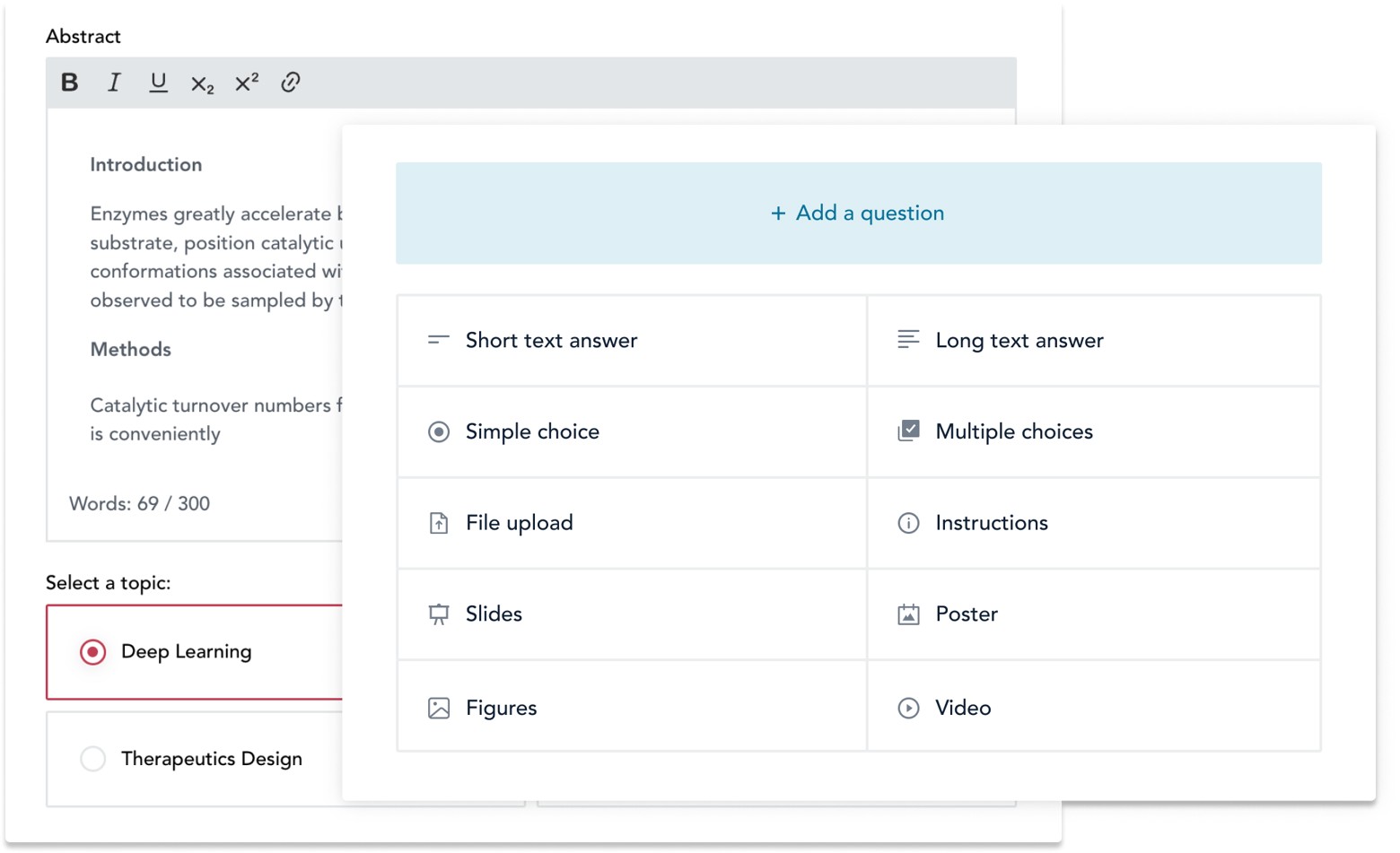
Fourwaves customizable submission form - Try it free
A customizable submission form simplifies the process of collecting abstracts, proposals, or full papers. Tools like Fourwaves allow you to create forms tailored to your event’s specific needs, ensuring consistency and ease of use for submitters.
Pro Tip: Launch a compelling Call for Papers to attract high-quality submissions. Use our Call for Papers Template to get started.
2) Assigning Reviewers
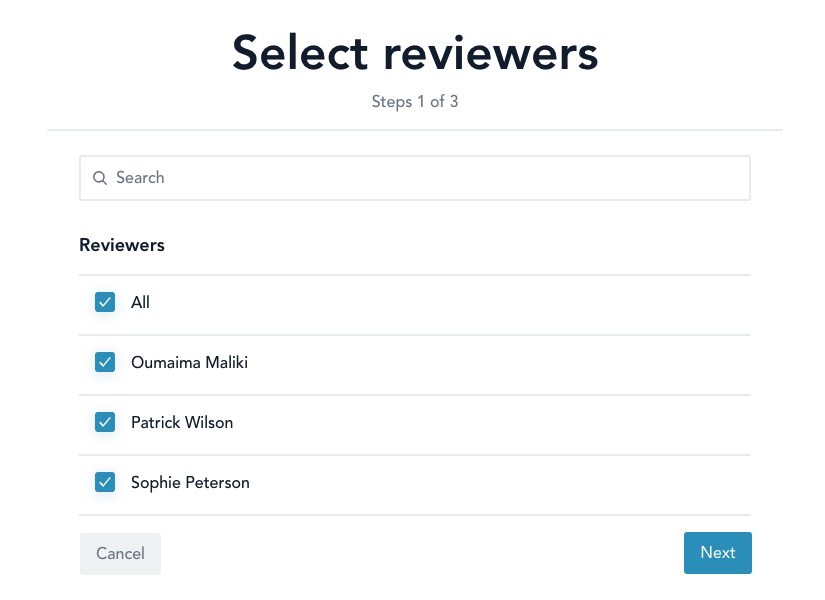
Fourwaves peer-review software - Try it free
Matching submissions with reviewers who have the appropriate expertise can be challenging. Peer review software can analyze keywords and topics to recommend optimal pairings, reducing workload while ensuring fairness.
Pro Tip: Protect the integrity of your review process by filtering for potential conflicts of interest or nepotism. Learn more in our Conference Reviewer Guide.
3) Scoring Submissions
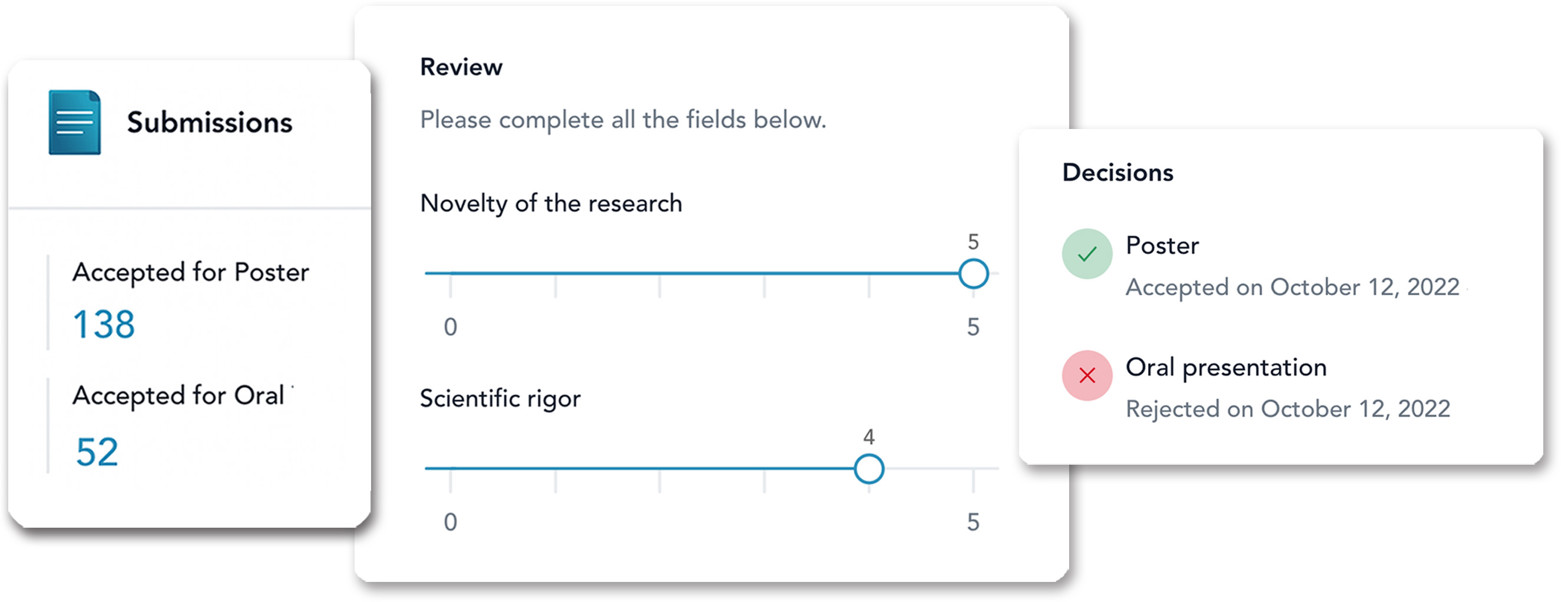
Fourwaves peer-review software - Try it free
Establishing clear, standardized criteria for reviewers helps ensure a fair and transparent process. Common criteria include:
- Originality: Does the research offer new insights or methods?
- Significance of Findings: Are the conclusions impactful to the field?
- Methodological Soundness: Is the research design robust and reproducible?
- Relevance to Theme: Does the submission align with the conference’s focus?
Fourwaves provides customizable scoring templates and dashboards to monitor reviewer progress, enhancing transparency throughout the process.
- Pro Tip: Simplify evaluations with Abstract Evaluation Tools tailored for academic conferences.
4) Notifying Authors
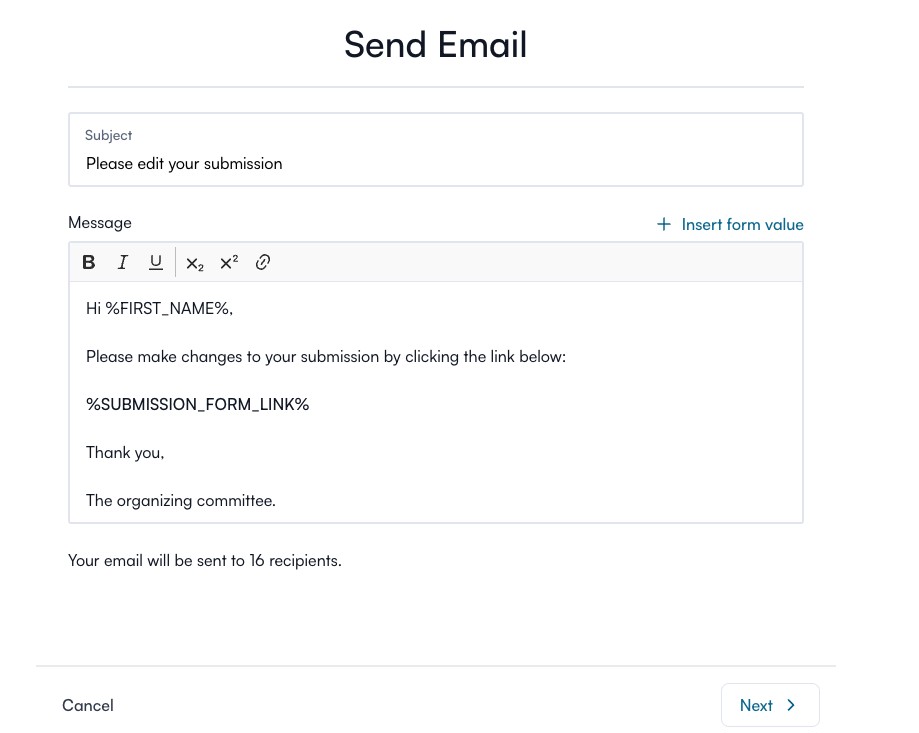
Fourwaves peer-review software email feature - Try it free
Timely and clear communication with authors is essential. Peer review tools like Fourwaves enable personalized notifications with detailed reviewer feedback, ensuring a seamless transition to the presentation stage.
Pro Tip: Automate communications with mass email features to save time and reduce errors.
How Peer Review Software Helps
Imagine a tool that simplifies every stage of the peer review process—from submission collection to reviewer assignments, scoring, and communication. Peer review software like Fourwaves offers:
- Centralized management of all peer review tasks on one platform.
- Support for ethical publishing practices, ensuring fairness and transparency.
- Analytics and insights to refine future review processes.
Explore More: Discover how Fourwaves Peer Review Software can transform your event.
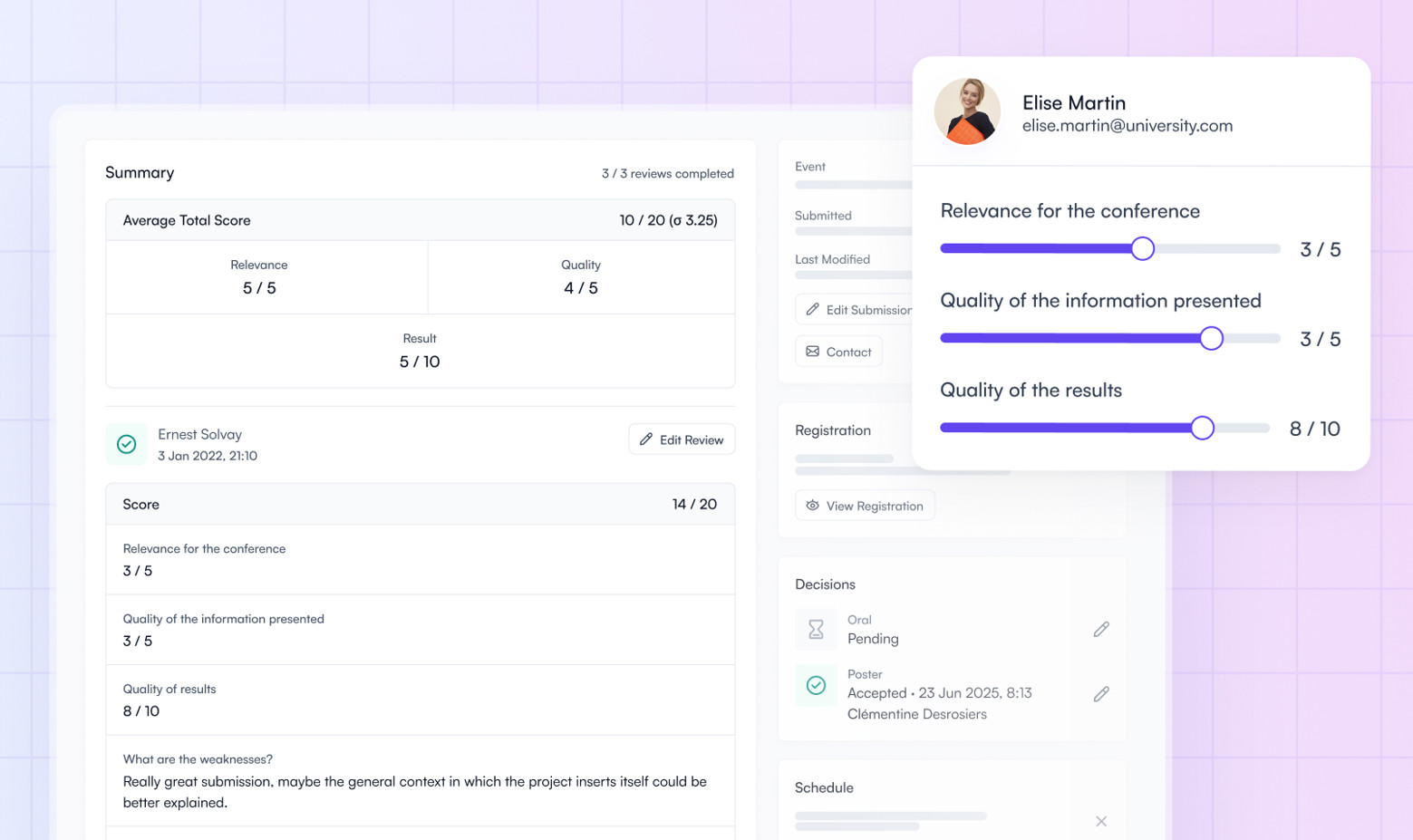
Fourwaves peer-review software - Try it free
The Power of Peer Review: Increase Conference Credibility
A well-managed peer review process is about more than just evaluating research—it’s about safeguarding the integrity, reputation, and impact of your conference. By leveraging cutting-edge technology and adhering to rigorous publication standards, your event can become a trusted platform for fostering scientific collaboration and advancing academic publishing processes.
Ready to elevate your conference? Book a demo with Fourwaves to see how our peer review software can streamline your event while fostering a transparent and efficient scholarly publishing workflow.


